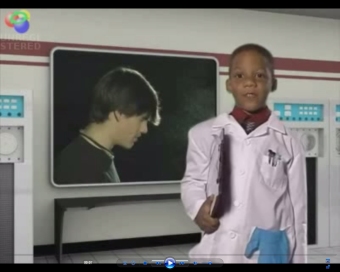Sneezing 101: Sickness in Schools
Posted: November 29, 2011 Filed under: Education, Long Island Schools, Nassau county schools, Parents, school, Uncategorized | Tags: school, school nurse, sick kids, sick students, sneezing, sneezing 101 Leave a commentRight before Thanksgiving, I caught a “head cold” from my husband. His cold went away after a week, but mine got worse. I couldn’t sleep, eat, or breathe through my nose.  I finally went to the doctor, who determined from a blood test that I had developed a bacterial upper respiratory infection, which required an antibiotic. The experience took me back to my three boys’ childhood illnesses, including late night bouts with the croup when they were babies; we would turn on the hot shower and steam up the bathroom as per the doctor’s recommendation. It also brought me back to my own childhood sicknesses, when my mother made me feel cozy and safe as I recovered on the living room couch after the doctor gave me a penicillin shot for tonsillitis.
I finally went to the doctor, who determined from a blood test that I had developed a bacterial upper respiratory infection, which required an antibiotic. The experience took me back to my three boys’ childhood illnesses, including late night bouts with the croup when they were babies; we would turn on the hot shower and steam up the bathroom as per the doctor’s recommendation. It also brought me back to my own childhood sicknesses, when my mother made me feel cozy and safe as I recovered on the living room couch after the doctor gave me a penicillin shot for tonsillitis.
The experience started me thinking of the difficulty parents have nowadays when their kids get sick. With so many parents working outside the home, the question of when to keep a young child home from school is a challenging one.
It is probably better to err on the side of caution. My daughter-in-law recently asked me to babysit for my four-year-old grandson because he hadn’t slept well and was lethargic.  That’s a good reason to keep a young child home from school. If a child does not feel well enough to comfortably participate in school activities, he is better off at home.
That’s a good reason to keep a young child home from school. If a child does not feel well enough to comfortably participate in school activities, he is better off at home.
Most parents know not to send their children to school with fever or a contagious illness. Kids who are vomiting, wheezing, have diarrhea, a rash, or persistent cough do not belong in school. You do not want your child in a compromising and embarrassing position. In addition, she will be sharing her germs with others. No one appreciates that!
Schools are hotbeds of germs. It’s important for children to know to wash their hands often and to cover their mouths when they sneeze. Lately, schools are teaching students to sneeze into the crook of their elbows. The children in this kid-friendly Public Service Video from the Virginia Department of Health describe this method. (http://www.vdh.state.va.us/epidemiology/DiseasePrevention/H1N1/Video/PSAs/Sneezing101.htm)
 School nurses encourage seasonal flu vaccinations to prevent flu epidemics in the schools. It is also highly recommended by doctors and nurses that children be vaccinated against communicable diseases. A number of these diseases, including whooping cough, are making a comeback in schools. They are highly dangerous and can be fatal.
School nurses encourage seasonal flu vaccinations to prevent flu epidemics in the schools. It is also highly recommended by doctors and nurses that children be vaccinated against communicable diseases. A number of these diseases, including whooping cough, are making a comeback in schools. They are highly dangerous and can be fatal.
As we enter the flu season, encourage your child to exercise good hygiene and get plenty of sleep. Have a contingency plan for your work if your child is home sick. If you don’t, the school nurse is likely to call before the day is over asking you to take your child home. Better to be safe than sorry. Let your child get the loving care he is entitled to, and to quote my grandmother, “He will be a professor a day later.”
